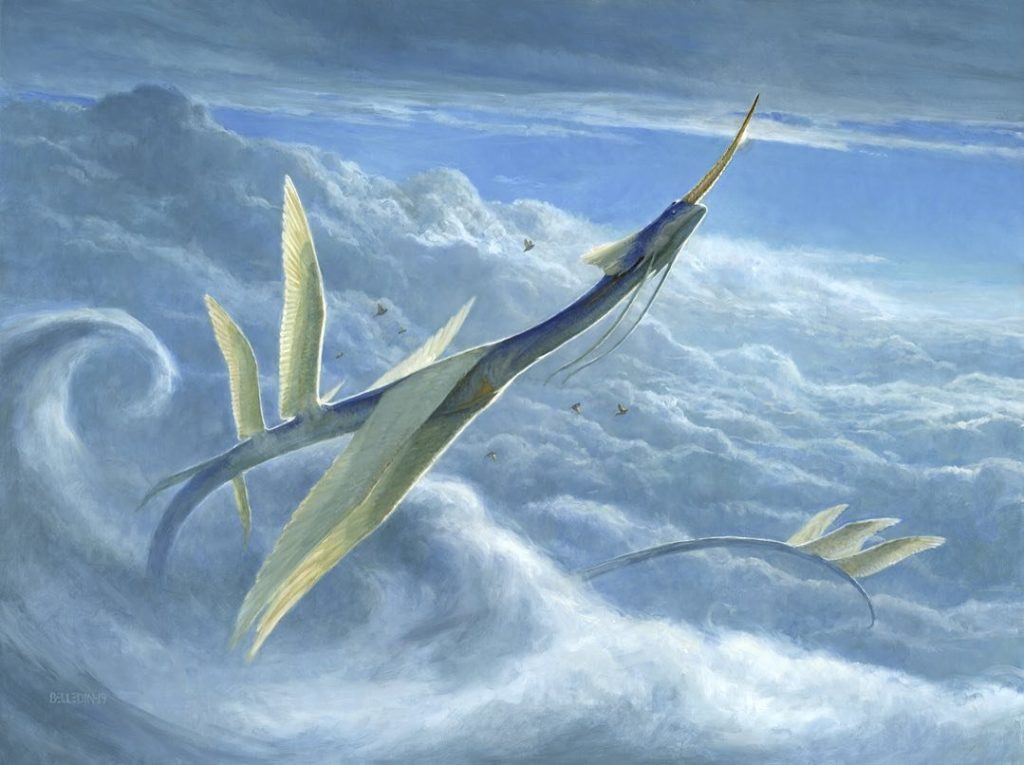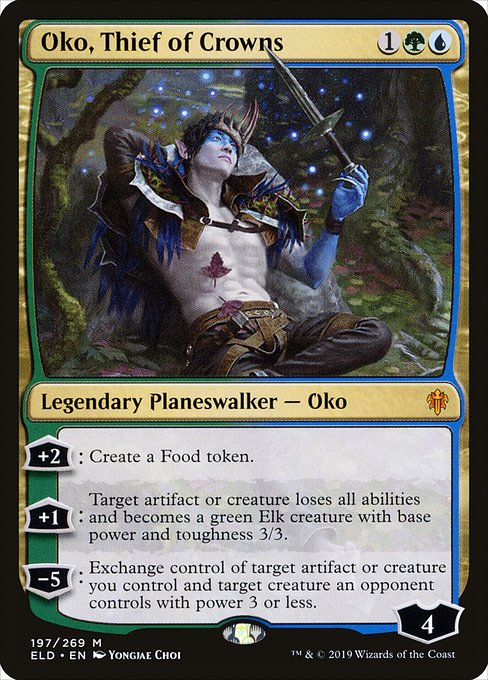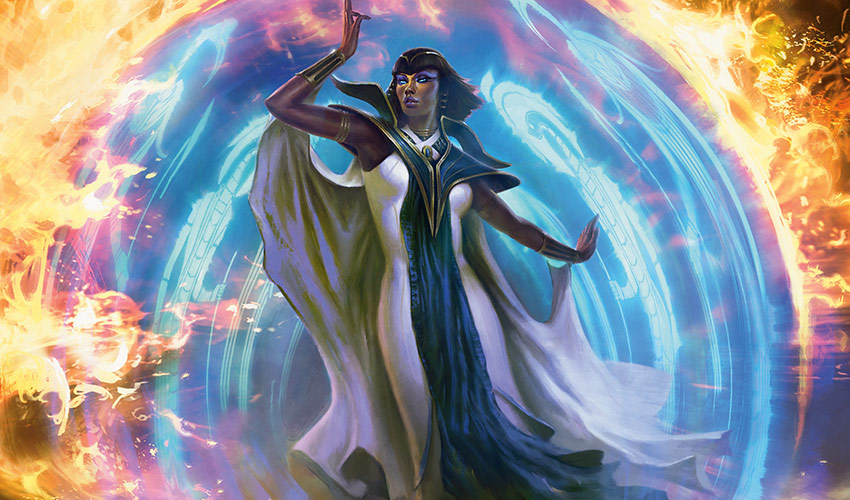Hello friends.
Before we get into today’s article, I’d like to talk to you a bit about the context. Since my last article, we witnessed the senseless murder of George Floyd. Folks across the country have taken to the streets, rightly so, to protest the injustices that Black Americans have faced in our country. After watching police brutality unfold on the news, writing about Magic seemed like the most insignificant thing I could be doing with my time. As a privileged, cis white man, I won’t use this to try and parse things out myself, because my voice shouldn’t be the one amplified about the subject. Instead, I’ll gladly echo that Black lives matter, and defer the thought leadership to those leading the charge.
The effects of COVID-19 have also been felt across the world. The Magic community is losing players to this disease, game stores are shutting down, and people are scrambling to keep their livelihoods intact. All remaining 2020 MagicFests have been cancelled. It’s simply not the time to be getting together in large groups to play this card game that we love. Coupled with the tumultuous state of Magic in 2019-2020, many players are questioning their loyalty to the game. It doesn’t take long to look online and see people expressing a mixture of sadness and disillusionment.
If you feel like this is the case for you, don’t worry, because you’re not alone. There are plenty of folks who could use a break from Magic right now. Let’s reflect on why we feel burned out with Magic, and what we can do to fill our time away from Magic.
Product and Financial Fatigue
Over the past few years, Wizards of the Coast has substantially upped their output of Magic products. Years haven’t gotten any longer—much as it might feel that way—so set releases and their preview seasons have been packed closer and closer to each other. The Double Masters teaser dropped right after Ikoria’s release, and now Core Set 2021 previews have begun two weeks later. Of course, this has been going on for a while now. Spoiler season never goes away if there isn’t enough time to step away from it.
We’re neck-deep in a hobby that prizes self-expression, but with that comes a dark underbelly of consumerism. Whether it be premium versions of cards, the loot box nature of booster packs, or the gem system of Magic Arena, the hobby is fraught with ways to spend your money, and spend it fast. It’s all too common to see people tying an element of self-worth into what they can and can’t afford, and chasing that endorphin rush that new things bring.

Format Fatigue
Pioneer and Historic arrived on the scene last year, adding more formats to the mix. This splintered the attention of players, adding new layers of complexity to stress over. While these formats have been well received, they’re also an extra mental burden to carry.

In the past two years, card design has been turned on its head. This new era has touched all formats, resulting in faster metagame shifts than ever before. The envelope is being pushed harder with each new set, causing the game’s identity to fluctuate among players. With the newfound power, cards are rising faster to the top, and getting banned sooner.
This card design pattern of flying too close to the sun has its effect on players, causing them to scramble harder to keep up. It was once the case that if you bought into Modern or Legacy, you could pick your deck and play it for years. However, we’re seeing that this is becoming less and less prevalent. 2019 brought plenty of new cards that pushed other staples, and decks altogether, out of their respective formats.

For instance, Modern has largely moved past the days of Knight of the Reliquary, Lingering Souls, and Collected Company. Instead, players are building around the likes of Uro, Titan of Nature’s Wrath or Ice-Fang Coatl. Legacy decks like Jeskai Mentor and UW Stoneblade have also fallen short to Oko, Thief of Crowns. Even basic lands have been invalidated by their snowy counterparts!
The more frequent or heavy the changes are, the more Magic’s identity gets distorted in the eyes of enfranchised players. This can lead to disillusionment with how we define Magic to others, and to ourselves.

Social Fatigue
It’s worth recognizing that it’s a privilege to experience only the first two factors mentioned here. There are many players who’ve been subjected to unfair treatment based on their gender identity, skin tone, sexual orientation, ethnicity, religion, body type, appearance, socioeconomic status, and physical ableness, just to name a few. While the Magic community has made important strides in recent years, acts of prejudice and discrimination still rear their ugly heads. They might not be obvious at first, but they live on in things like Reddit comments, Twitch chat, Twitter DMs, or underhanded remarks like “Nice deck, is it your boyfriend’s?”
Speaking from this position of privilege, I’ve never had any of these things happen to me. In fact, most of the other cis white men reading this will share the same experience. But if we don’t see it in front of our nose, it doesn’t mean it isn’t happening. The fact that they’re happening in Magic, and our communities at large, is a problem that needs correcting. When it comes to discussing these problems, the first to say “There aren’t any” are cis white men that make up the majority of the player base. And to no one’s surprise, this group is the largest offender in the first place. When this behavior comes from community figures, like game store owners or tournament organizers, it further marginalizes underrepresented groups. This closes the opening into the community, instead of widening it. Negative social interactions are enough to drive anyone from a hobby.
When it comes to hobbies, some of the most toxic behavior can come from the most entrenched people. If they’ve put a lot of time and sweat equity into the hobby, that can give them a sense of entitlement over it. That entitlement gives them the notion that they have the right to dictate how others partake in the hobby. This gatekeeping can lead to some of the harshest ridicule of new ideas, or things that challenge the status quo that they’ve built. “This is how we’ve always done it” is one of the most dangerous things we can hear in any organization.
This is the tip of the iceberg when it comes to social fatigue. There are a number of folks out there with firsthand accounts of prejudice and discrimination, who are far more qualified to describe those experiences than myself.
When it’s Time to Step Away for a While
When you shuffle up a deck, or sit down to play online, are you excited? Do you have that eager feeling of wanting to dive right into the game? Or is playing Magic causing you to dredge up negative feelings from an interaction elsewhere? If Magic isn’t sparking that excitement, then maybe it’s time for a break. While there are a handful of people that do this for a living, the vast majority of us are doing it for fun. If it’s not fun, then that’s a sign that it’s time to re-evaluate why you do this.
Some players, such as myself, bounce between formats a lot. That’s an easy way of keeping things fresh and interesting. While it can get expensive to have a hand in multiple formats, it can act as a long-term investment into your enjoyment of Magic. For instance, Canadian Highlander is great for providing a refuge from the swings of contemporary design. Our own Urchin Colley has found joy during these times of quarantine by exploring Canadian Highlander at home. However, more Magic isn’t the catch-all solution to having problems with Magic. Switching formats can alleviate short-term boredom, but it’s no substitute for self-reflection.
Alternatives to Magic
During these times, more and more people are looking to get involved in their local communities. This is particularly relevant to the growth in support for Black Lives Matter. All fifty states have seen protests against racial injustices and police brutality. When there are world-changing events happening in towns across America, it’s only natural that a card game will feel inconsequential. If you can’t get out and protest, though, there are other ways to support the movement from home. For instance, you can donate money, amplify Black voices on social media, and have constructive conversations with your friends and family. By taking the time to get involved with your local community, it’s a way of being a part of something larger than yourself. It’s worth mentioning that getting involved in your community is a fantastic thing to do, regardless of world events, or how you feel about Magic at the time.
For recreation, cultivating another hobby is a great way to fill the gap that Magic leaves. Personally, I love cycling in all forms. PleasantKenobi has taken to painting Warhammer models, Emma Partlow enjoys running, and Brian David-Marshall loves to cook. A hobby can be anything from weightlifting to gardening, as long as it’s engaging and rewarding. If it’s safe to do so in your area, hiking and getting outdoors are medically-proven to help both the body and mind. These other hobbies are critical for exercising different parts of the brain, which will pay off when it’s time to play Magic again.

Playing board games friends is a common alternative in the Magic community. Worldwide quarantines have ground a lot of sessions to a halt; nevertheless, games like Scythe, Gloomhaven, and Wingspan all have solitaire variants. These self-contained experiences can be healthy alternatives to Magic. They’re also good ways to support your local game store during quarantine, if you aren’t buying Magic products from them.
Looking After Yourself, and Others
Only you can decide when it’s time to step away from Magic, if or when it’s time to return. Your mental health is critical, not to mention your ability to afford the basic necessities. When we’re in heated discourse about Magic, it’s easy to forget that this is still just a card game that we can walk away from.
Everyone is handling these times differently, with some more comfortably than others. Since we don’t have that in-person aspect of “The Gathering,” it helps to check in on your friends. How your friends behave online could be different than what they’re like on the phone, especially in this current climate. Though I was not much of a video caller last year, I’ve found that they’re one of the best ways to socially interact right now.
How we identify ourselves is another point to consider. While I’ve referred to myself as a Magic player more than once, it can be dangerous to attach so much of our identity to a hobby. The reason being that if you choose to step away from the hobby, it can feel like you’re creating a hole in yourself. That hole is a vacuum left behind, which is problematic; we shouldn’t be feeling any less than our full selves, regardless of how we spend our time. We’re so much more than just Magic players. We’re people who play Magic.
You’re in Charge
When it comes to factors that influence burnout, we can handle them in different ways. We can cut back on how much we buy, and which formats we play. Most importantly, though, we have the ability to change how we treat each other. This can manifest itself in various ways, whether it’s through recognizing our own privilege, welcoming new people, or simply being someone to talk to. By recognizing the things we both can and can’t change, it’ll help everyone navigate their experience playing Magic. It’s on us to create that welcoming environment.
You make the decision to play Magic, and you can also make the decision to step away. Both decisions are perfectly valid, and only you can make that decision for yourself. Recognizing when it’s time to do so makes all the difference. If and when you decide to step away for a while, that time may be just what you need. But if you want to find Magic again, you’ll know where to look.
Travis is a Virginia-based player and writer, who has been turning things sideways since Starter 1999. He primarily plays Commander, Pauper, and Legacy, and has a passion for introducing new players to the game. When he isn’t making people pay the Thalia tax, he can be found mountain biking or playing the guitar. You can follow his exploits here on Twitter and Instagram.

